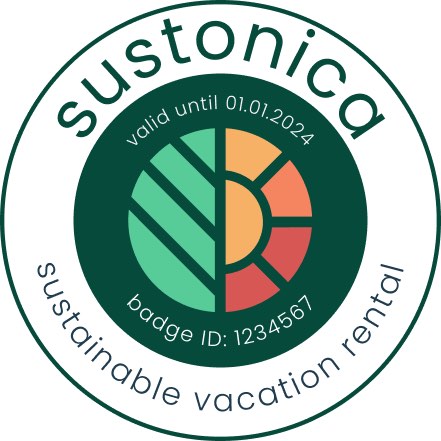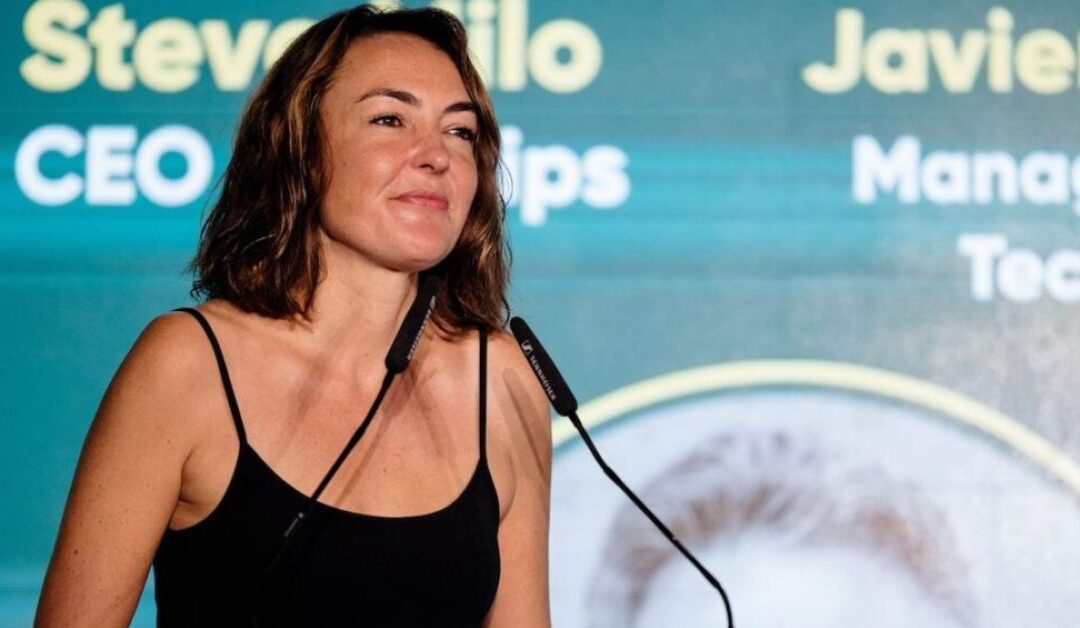Vacation rental tech entrepreneur Vanessa de Souza Lage grew up with sustainable practices. Recycling and compost gardens were part of daily life at her school. As an adult, she gave up eating meat to reduce her impact on the environment.
For most of her career, she was a vacation rental tech entrepreneur. In 2015 alone, she founded VRTech Events and co-founded Rentals United, a channel manager.
So after she left her position as chief marketing officer at Rentals United in late 2021, she wanted her next venture to combine her passion for eco-friendly living with her expertise and connections in vacation rentals.
“Sustainability is a topic that we haven’t been taking very seriously in the vacation rental industry,” Vanessa said on a recent episode of The Green Path Podcast. “I spent about a year deciding and researching how we can introduce this topic in the most impactful way but also in the easiest fashion for property managers around the world.”
Her solution was Sustonica, the first sustainability accreditation for vacation rentals.
A gap in the vacation rental industry
Hoteliers have made progress in making their accommodations more eco-friendly. The industry has a selection of hundreds of different sustainability accreditations. Yet vacation rentals had no sustainability accreditations until Sustonica launched in January 2023.
Because vacation rental operators do business differently, hotel accreditations don’t work for them. Additionally, hotel accreditations require in-person audits, which aren’t scalable for individual homeowners and small property managers scattered around the globe.
Virtual sustainability inspections
Sustonica made its accreditation scalable by providing virtual home inspections. The company has developed a software that allows homeowners and property managers to complete the verification process themselves by uploading photographs of eco-friendly features and amenities.
Vacation rentals that earn the accreditation receive a sustainability badge that can be displayed inside the home, on a direct booking website, and on certain online travel agencies (OTAs). So far, Smiling House Luxury has agreed to add a filter for the badge, and Vanessa is in talks with other OTAs to include the badge. The accreditation costs 40 euros per property, or a little less than $44, as of April 2023.
“The badge rewards them and lets the world know that they’re actually looking at sustainability and trying to help in that effort,” Vanessa said.
Reasons to get a sustainability badge
Beyond caring for our planet, hosts who make their vacation rentals more eco-friendly gain credibility and are more appealing to guests. Surveys back this up. About 71% of global travelers said they want to travel more sustainably, according to the most recent Sustainable Travel Report by Booking.com. And according to Expedia Group’s 2021 Global Impact Report, 59% of travelers are willing to pay more to make their trip more sustainable.
In terms of branding and marketing, a sustainability badge makes business sense. Eco-friendly practices also tend to save money on energy and water costs, which helps reduce the business’s bottom line.
A sustainability badge also sends a message to local governments that vacation rental operators are responsible and conscientious members of the community, Vanessa said. This has an impact when lawmakers consider policies on vacation rentals in their communities.
Download: The 2023 STR Sustainability Report & Resource Guide
How to get a sustainability badge

The Sustonica accreditation is based on 40 data points, including whether the vacation rental has energy-efficient appliances and technology that reduces energy or water usage.
To earn the badge, the home needs to meet a minimum of 20% of the criteria. Sustonica set the minimum criteria at that level because they wanted the badge to be attainable and to encourage property owners to make gradual changes toward greater sustainability, Vanessa said.
One of her frequent talking points is that changes can be low cost or no cost, and some of the practices operators may already be doing. One change could be as simple as buying recyclable toilet paper or paper towel rolls the next time the supply runs out. Another easy measure is to change your electricity contract to 100% renewable energy or buy a Renewable Energy Certificate, also known as a Guarantee of Origin, which essentially means buying renewable energy that will be shared on the electrical grid.
“All these things are very easy to do and don’t cost anything,” Vanessa said, “and that is very powerful.”
Vacation rental operators can get started by taking Sustonica’s online quiz to find out how eco-friendly their property is now. Once they are ready to apply for the accreditation, they can sign up on the website and go through the three-step process: register a property, upload documentation, and do the photo tour.
Supporting the community
Sustainability is a broad topic, and Vanessa has made a point to emphasize that sustainability extends beyond the environment and has lasting impacts on communities. As part of the accreditation, she asks vacation rental operators to recommend local businesses and attractions in their digital guest books.
For example, hosts could recommend local heritage sites, vegan restaurants, or EV charging stations.
“It’s not just the environmentally friendly aspects of the property but also how you help the community by recommending things to your guests,” Vanessa said.
Sustonica also sponsors episodes of The Green Path Podcast hosted by Deborah Labi, a fellow entrepreneur in the vacation rental sphere. Vanessa was a guest on a recent episode of the podcast, where Deborah interviews vacation rental hosts and businesspeople about sustainable practices in the industry.
10 million sustainable vacation rentals
Sustonica’s mission is to make the world’s 10 million vacation rentals more sustainable and have a positive influence on 450 million guests who pass through those homes each year. The idea behind the mission is that sustainable practices and amenities inside vacation rentals can inspire guests to adopt those practices at home.
“Combining sustainability with vacation rentals is not just an industry game; it could have a worldwide influence on people’s lives,” Vanessa said.
She is modeling that ideal in Barcelona, Spain. She owns and operates a vacation rental in Barcelona and hopes to make it a model home for other vacation rentals seeking to become more sustainable.
One of the sustainability features she loves is water filters that can be placed on the tap so that guests don’t have to buy water in plastic bottles during their stay. She’s also a fan of occupancy sensors that shut off air conditioning and heating when no one is at home.
“These are small things that make a whole lot of difference,” she said.
Read more: Three strategies to reduce, reuse, recycle short-term rental waste
…
SUBSCRIBE TO GET UPDATES



